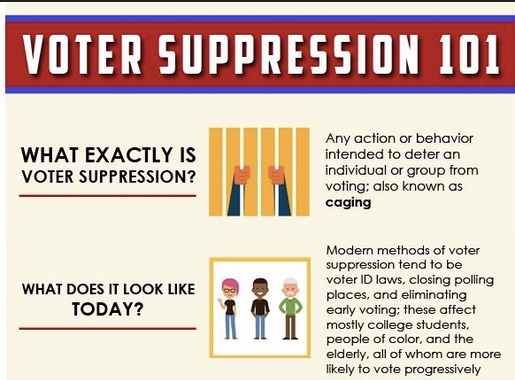WASHINGTON — In Georgia, Arizona and other states won by President Biden, some leading Republicans stood up in November to make what, in any other year, would be an unremarkable statement: The race is over. And we lost, fair and square.
But that was then. Now, in statehouses nationwide, Republicans who echoed former President Donald J. Trump’s baseless claims of rampant fraud are proposing to make it harder to vote next time — ostensibly to convince the very voters who believed them that elections can be trusted again. And even some colleagues who defended the legitimacy of the November vote are joining them.
According to the Brennan Center for Justice at New York University, state legislators have filed 106 bills to tighten election rules, generally making it harder to cast a ballot — triple the number at this time last year. In short, Republicans who for more than a decade have used wildly inflated allegations of voter fraud to justify making it harder to vote, are now doing so again, this time seizing on Mr. Trump’s thoroughly debunked charges of a stolen election to push back at Democratic-leaning voters who flocked to mail-in ballots last year.
In Georgia, where the State House of Representatives has set up a special committee on election integrity, legislators are pushing to roll back no-excuse absentee voting. Republicans in Pennsylvania plan 14 hearings to revisit complaints they raised last year about the election and to propose limitations on voting.
Arizona Republicans have subpoenaed November’s ballots and vote tabulation equipment in Maricopa County, a Democratic stronghold that includes Phoenix. Legislators are taking aim at an election system in which four in five ballots are mailed or delivered to drop boxes.
Those and other proposals underscore the continuing power of Mr. Trump’s campaign to delegitimize the November election, even as some of his administration’s top election experts call the vote the most secure in history. And they reflect longstanding Republican efforts to push back against efforts to expand the ability to vote.




